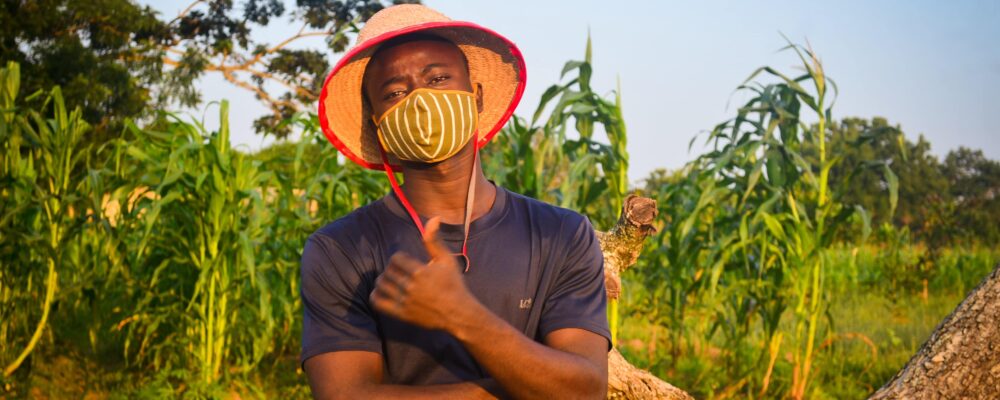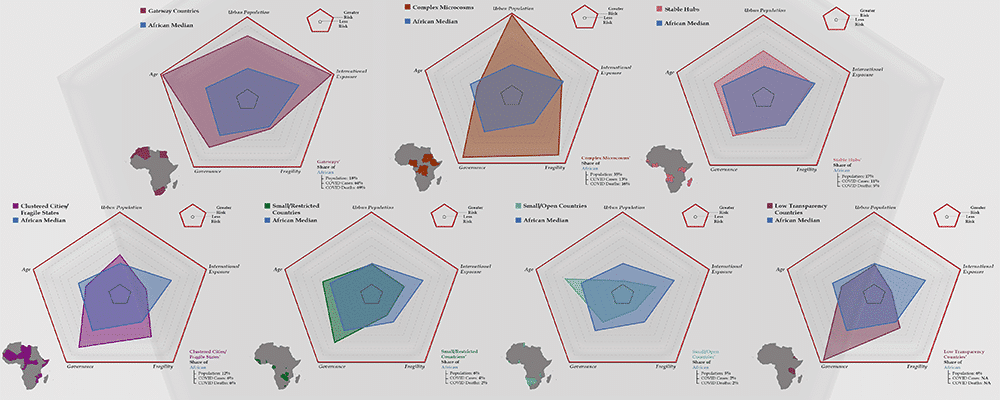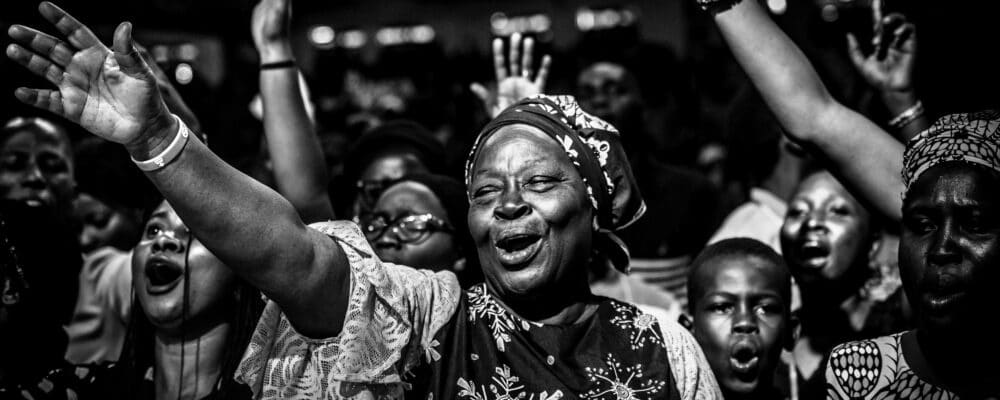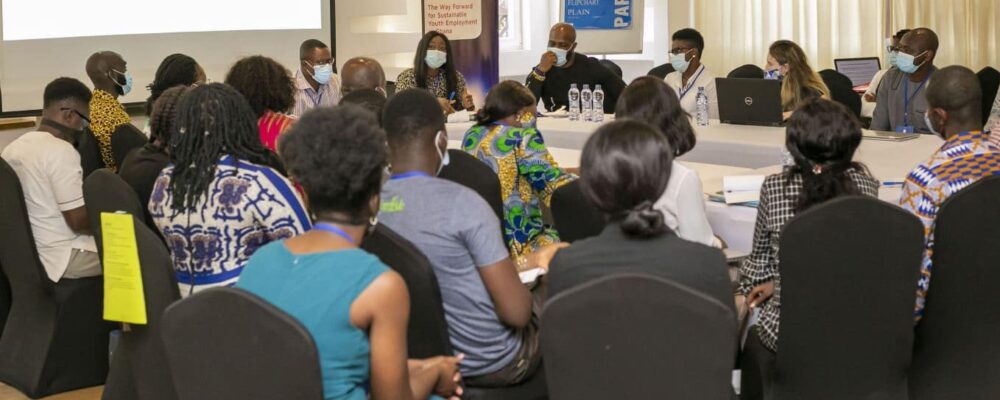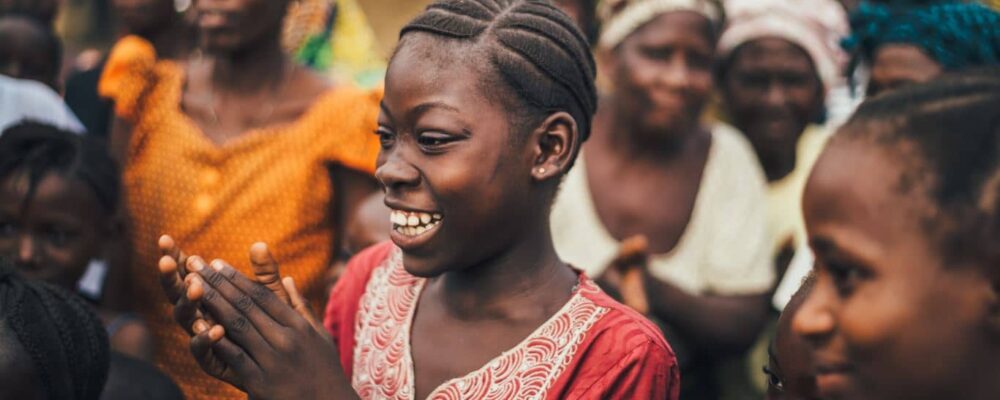
Since March 2020, when the coronavirus first landed on the African continent, INCLUDE has been tracking and sharing responses across multiple development sectors, looking at how interventions have impacted (or could impact) different vulnerable groups, and what the implications are for overall inclusive development.
Our initial rolling news item captured immediate policy responses to the pandemic, as well as emerging predictions of the impacts, such as the ILO’s forecasts for the world of work and the WHO’s estimates of health consequences. Subsequent news items compiled increasingly data-driven evidence on interventions and outcomes in specific areas, including youth employment, education, food security and social protection. Given Sub-Saharan Africa’s relatively high health risks, low state capacities and large inequalities, outlooks were grave, involving setbacks in multiple SDGs and marginalised groups being left further behind in development.
From July, INCLUDE’s ‘Equity in COVID-19’ research programme analysed policies at the country-level in a more structured way, yielding insights into how responses were formulated, implemented and adapted. This research has revealed more nuanced impacts of the crisis. Even though many of the early predictions have proven true, there have been significant deviations between sectors that have flourished versus collapsed; groups that have been supported versus neglected; economic, social and political structures that have been reinforced versus replaced; and inequalities that have widened versus narrowed. Important factors in these deviations are the degree of involvement, coordination and trust between actors.
Amongst the plethora of news and studies on COVID-19 in Africa, the focus has tended to be on what has been missed or neglected in policy choices, what went wrong with implementation, and who has been left out and subsequently made (more) vulnerable. From scepticism around testing and health reporting, to under-funding and corruption, to poor preparation, timing and prioritisation, many African governments have been criticised for lacking the capacity and willingness to deal with the current crisis and protect their most vulnerable citizens.
Though we recognise the usefulness of highlighting overlooked policy options to extract lessons for future emergency responses, arguably too little attention has been given to the successes of this year, from disasters that were avoided, to previously marginalised groups who became acknowledged and protected through formal policies, to fair and effective initiatives and recovery strategies which could lead towards a more resilient future. These successes can provide equally useful lessons around what works (and what does not) in crisis situations and what could help to build back better and, importantly, more inclusive.
1. Health disaster mitigation
Considering risk factors such as population size and density, levels of sanitation and disease, and public healthcare capacity, the loss of life due to coronavirus in Sub-Saharan Africa could have been catastrophic. In 2019, most African countries ranked at the bottom for pandemic preparedness in the Global Health Security Index, and in early 2020, Africa was predicted to become the next epicentre of the virus. However, by mid-November, Africa had contributed to just 3.6% of COVID-19 cases and deaths worldwide.
Even with questionable statistics, arguments about African demography and climate factors reducing the risk of infection, and the possibility that the worst is still to come, at least some of this achievement can be attributed to the rapid action taken by African governments. Many countries implemented lessons from past viral disease outbreaks, such as Ebola, Tuberculosis, Cholera and Malaria to establish innovative strategies around testing, tracing, isolating, treating and shielding against COVID-19. Preparedness plans in Senegal and the Gambia involved engaging communities in high-risk border areas, crowded urban slums and informal settlements. Ghana, Kenya and Nigeria mobilised manufacturing spaces, technologies and funding to expand the capacity and affordability of protective equipment, testing and healthcare. These countries, among others, have been commended for their quick decision-making, adaptive policies and innovative use of resources to manage health responses and spare lives.
2. Technology adoption
Sub-Saharan Africa was, as a whole, ill prepared for the forced shift to online activity that resulted from widespread lockdowns, due to a lack of infrastructure, regulation, skills and financing for new and existing technologies. However, the region has begun to seize opportunities to catalyse its digital transformation and leapfrog in terms of development. Technology has been spurred across the continent, not only in business and job creation, but also in the public realm, with innovations being created and scaled up in e-healthcare, e-learning, digital social protection and e-governance.
A report by the European Investment Bank in July 2020 showed how, already, there were many pioneering digital solutions that were affordable and easy to implement, such as a mobile application for contact-tracing in Kenya; drones to share information in rural Ivory Coast and deliver samples to medical laboratories in Ghana and Rwanda; a self-diagnosis app available in 15 African countries; an online learning platform for secondary education in Tanzania; a platform to organise and monitor food and non-food distribution to the poorest people; and a system to map social media data on the effects and responses to the pandemic; and the widespread ramp up in cashless transactions and mobile money. Technology has also been used to improve trust, communication and accountability between governments and citizens. Although there is a long way to go to overcome inequalities in access to and quality of technology, impressive progress has been achieved over the past year, including greater knowledge about the costs, prerequisites and risks of digital transformation.
3. Protecting the vulnerable
On March 27th 2020, just 6 countries in Sub-Saharan Africa had implemented social protection responses to the pandemic. By June, 43 countries had responded with a total of 155 social protection measures. The vast majority of these were social assistance programmes; several governments such as Kenya, Malawi, Nigeria, Rwanda, South Africa and Uganda provided cash and food to vulnerable populations and subsidised utilities. Many programmes involved an increase in coverage to new beneficiary groups, as well as innovative ways of identifying, targeting, and delivering transfers to beneficiaries, for example, by existing data sources and technologies, and by cooperating with mobile phone and money providers (such as MTN Ghana, MTN Nigeria, Vodafone Ghana and Sonatel Senegal) and community leaders. The Togolese government implemented one of the most noteworthy cash transfer programmes of the past year, with every step of the process being digitalised, and assistance being targeted specifically to informal workers and women. The speed at which new programmes have been designed and implemented has been impressive – the challenge going forward will be to maintain and refine them and embed them within longer-term social protection systems.
4. Leadership by youth, women and communities
Despite the particularly harsh impacts of the crisis on women due to their prevalence in care roles and informal work and often marginalised position in households, there are many examples of African women leading the COVID response through formal public leadership as well as in business and at community level. Women have shown their capacity to effect change in many ways, for example, by drawing on informal networks and finding alternative resources to overcome challenges, by reshaping the tone of messages to change behaviour and engage communities, and by forming partnerships and understanding the need for collective action – all of which have been vital to the protection and recovery of societies over the past year. Africa’s women are also leading multiple initiatives which target girls and women in areas where they have been significantly affected by COVID restrictions, such as sexual, reproductive and maternal healthcare, education, and personal security. The mayor of Freetown, Sierra Leone, Yvonne Aki-Sawyerr; Rwandan cabinet member Clare Akamanzi, Ghanaian Member of Parliament Dr. Zanetor Agyeman-Rawlings and Guinean economy and finance minister Malado Kaba have all been recognised in their efforts in driving a gendered response. Continued participation of women in leadership roles will help to increase the voice of women and girls and drive gender inequality in the longer-term.
Young people across the continent have been involved in the fight against COVID-19 and the related crises. Youth have been key actors in creating and driving the digital response through social media and innovations, and helped to find locally relevant solutions to the challenges of remote learning and business. Community and youth engagement in Ghana and Rwanda have made a difference in the uptake of public health provisions, fighting misinformation, and identifying and reaching those most impacted by lockdowns, for example, by preventing the extension of lockdowns and by making CAP loans accessible to informal SMEs. In other contexts, young people have taken education into their own hands by creating new platforms and content to ensuring continued learning. These community responses have generated social capital and a shared responsibility for overcoming the crisis.
5. Integrated regional governance
On February 4th 2020, the African Union and the Africa Centre for Disease Control and Prevention launched the Africa Task Force for Novel Coronavirus with the aim of centralising the provision of technical support for managing the pandemic. The task force set up the Partnership to Accelerate COVID-19 Testing (PACT) in April, and later created the Africa Medical Supplies Platform (AMSP) as a single online marketplace to procure critical medical supplies. The AU also convened a meeting with African health ministers in February to endorse the Africa Joint Continental Strategy for the COVID-19 Outbreak, and set up the African Union COVID-19 Response Fund in March to complement public-private partnerships that were a key goal of the strategy. This early political engagement at the highest level and the multilateral approach to resource mobilisation facilitated continent-wide alertness and preparation, offered support and cooperation between different levels of governance, and increased Africa’s capacity and ownership of the response.
Conclusion
Many of these successes have been overshadowed by the severity and complexity of challenges facing African governments (which extend beyond COVID-19), and the fact that we cannot measure alternative outcomes, that is, the state of affairs had these interventions not been made. Perhaps it is too early to tell precisely which interventions will lead to longer-term inclusion and shared prosperity. But identifying, extrapolating and replicating the policies and practices which have kept economies and societies going during this testing year is an important process in generating not only effective policymaking, but also hope and solidarity.
Maybe more than ever, policy lessons are flowing two ways, with Africa’s image being boosted in the global development arena. There are lessons to be learned from the region’s response in acting together, doing more with less and being decisive – an overarching theme among these successes is the benefits of being adaptable and facilitating strong, unified and participatory governance. Ideas and assumptions have begun to shift around vulnerability, the formal-informal divide, local-global, fundamental skills and investments, the role of different actors, and even what it means to be developed or developing. African countries possess the knowledge and capacity to become more self-sufficient, along with value systems and ways of organising that have proven effective and that we can all learn from.

